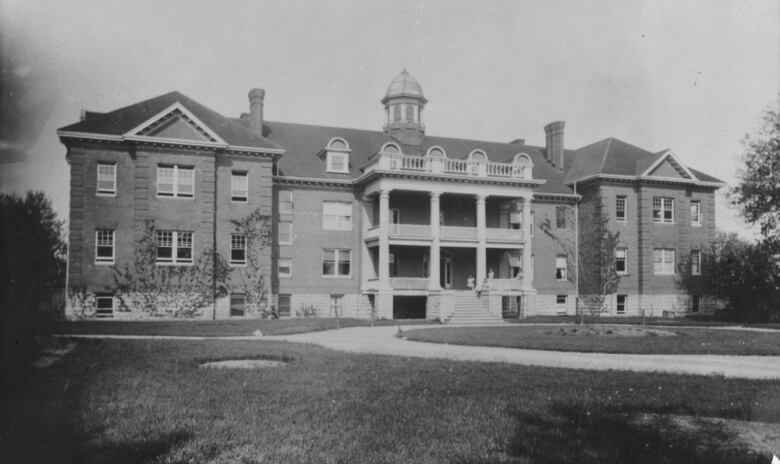Anglican Church of Canada apologizes for spiritual harm to Indigenous Peoples
'We demonized their spiritual traditions — and it's time for us to own up to that history,' says Fred Hiltz

In an open letter published Friday, the leader of the Anglican Church of Canada apologized for its "cultural and spiritual arrogance" that caused harm to Indigenous Peoples.
"We followed too much the devices of our hearts in trying to remake Indigenous Peoples in our image," Fred Hiltz, the most senior archbishop of the Anglican Church of Canada, told CBC News.
"We belittled their traditional teachings, we banned their ceremonies, we demonized their spiritual traditions — and it's time for us to own up to that history."
The apology acknowledged what the church's called its sins of "arrogance in dismissing Indigenous spiritualities ... as being incompatible with the Gospel of Jesus," of declaring Indigenous teachings to be pagan and primitive and of banning smudging, ceremonial pipes, drumming, potlatches and other cultural practices. It acknowledged that these acts caused "intergenerational spiritual harm."
"We were wrong to do that, and we recognize the spiritual harm that was created for numerous generations of Indigenous Peoples," said Hiltz.
"We tried to crush [their practices] and it was just wrong."

Indigenous ways 'are perfectly OK'
Between 1820 and 1969, the Anglican Church ran three dozen residential schools. The apology it issued to survivors in 1993 clearly identified physical, emotional and sexual abuses, but Hiltz said it didn't explicitly address spiritual abuse.
The Anglican Church also ran more than 150 Indian day schools, according to a list compiled for the Federal Indian Day School class action.
Ry Moran, the director of the National Centre for Truth and Reconciliation (NCTR), said the church's apology for spiritual harm is an important step forward.
"The relationship between religious institutions, education and Indigenous people has not been one that has been positive over the long history of Canada, and there has to be significant recognition of that and significant reforms made," said Moran.
"What we're starting to see is the recognition that Indigenous spirituality, Indigenous ways of knowing are perfectly OK as they are. They do not need to be converted into anything else."
That's something the United Nations Declaration on the Rights of Indigenous Peoples affirms; and the Truth and Reconciliation Commission's Call to Action #60 calls on churches to educate clergy who work in Indigenous communities on the legacy of residential schools, the need to respect Indigenous spirituality in its own right, the history and legacy of religious conflict in Indigenous communities and the responsibility of churches to mitigate such conflicts.
Hiltz said both UNDRIP and the church-related Calls to Action are the church's responsibility to endorse and implement. He also wants the church to "build up" its Anglican Healing Fund that is aimed at helping address the residential school legacy by supporting initiatives to heal and recover language and culture.
'The damage has been done'
Emma Saganash, a residential school survivor and retired CBC journalist from the James Bay Cree community of Waswanipi, Que., said she felt indifferent to the apology.
"It's too late. The damage has been done," she said.
"The harm has been done already. Is an apology going to make it better? I don't think so."

Saganash attended Mohawk Institute in Brantford, Ont., and then transferred to La Tuque Residential School, about 150 km north of Trois-Rivières, Que. Both residential schools were run by the Anglican Church, as was the Bishop Horden Memorial School in Moose Factory, Ont., where her six-year-old brother Jonnish died and was buried during his first year of school in 1954.
She said the impacts of the church's views of traditional cultural and ceremonial practices were felt beyond residential school survivors, and today still linger across Cree communities.
She gave the example of last year's community opposition to holding a powwow in Waskaganish, Que., or when controversy was swirling around the construction of a sweat lodge outside a home in Ouje-Bougoumou in 2010.
"Our traditional ways were put down, they were saying it was evil," said Saganash.
"I'm sorry to say, but there are still some people who believe that it is evil to practise — but it's not. The churches really did a good job in scaring people, even Indigenous people."

